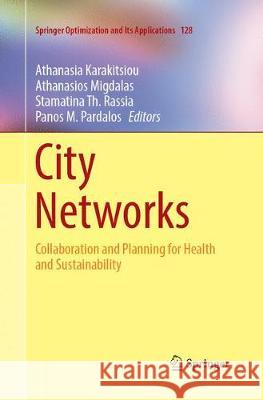City Networks: Collaboration and Planning for Health and Sustainability » książka
topmenu
City Networks: Collaboration and Planning for Health and Sustainability
ISBN-13: 9783319880013 / Angielski / Miękka / 2018 / 278 str.
Kategorie:
Kategorie BISAC:
Wydawca:
Springer
Seria wydawnicza:
Język:
Angielski
ISBN-13:
9783319880013
Rok wydania:
2018
Wydanie:
Softcover Repri
Ilość stron:
278
Oprawa:
Miękka
Wolumenów:
01











